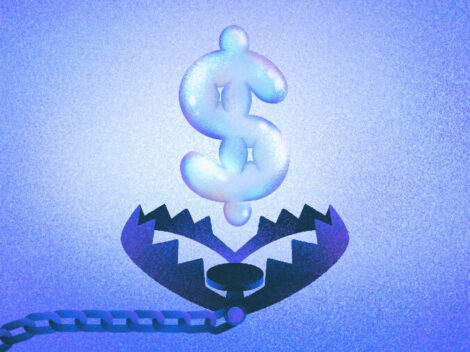Strategy Session is a new feature for Crunchbase News, where we ask venture capital firms five questions about their investment strategies.
Subscribe to the Crunchbase Daily
Vienna-based APEX Ventures is at it again, this time with a second fund dedicated to digital health startups.
The firm is raising $50 million for the fund, which will back seed-stage deep-tech companies with defendable intellectual property. The fund is led by Gordon Euller, partner with APEX, and a radiologist who previously worked at AKH, Vienna’s General Hospital, as well as at McKinsey in London.
Most of APEX Ventures’ investments have been made in the Germany, Austria and Switzerland region, but with APEX Digital Health, the firm is expanding its focus area to include the rest of Europe, Israel and the U.S.
Since the beginning of the year, the firm has made investments in four digital health companies:
- MindPeak, which optimizes workflows in pathological analysis;
- DeepSpin, a company developing an artificial intelligence-powered MRI imaging machine;
- Quibim, a biotech company focused on medical image processing; and
- Novoic, a digital biotech company developing AI-based speech analysis.
Euller discussed the new fund’s strategy with Crunchbase News:
Why is now a good time for your second fund?
Part of it is the natural life cycle of a fund. We are almost four years into our first fund, so we wanted to start looking at a second one right now.
What do you see going on in digital health that makes it an appealing industry for your fund?
The market is growing rapidly in that space. There are still a limited number of institutional players with a dedicated focus on digital health in Europe. In the U.S., it is a little further along, but still not common. Digital health is going to be an ecosystem on its own, especially as COVID-19 has proven how important health care and digital health is, and how to overcome the situation to certain degrees. This is about putting more capacity in our health care system.
There is also a shift moving toward digital biomarkers, which are being used for speech, imaging and pathology. You can create a biomarker for speech that could detect Alzheimer’s disease, or a scan that would identify certain pixels and structure them together to show cancer.
There are so many layers to digital health. What is your strategy in finding promising startups?
We can put companies into certain buckets: artificial intelligence, machine learning, pathology, radiology, early-stage, but it is always about the team. We are investing in a group of people with protectable technology.
We are getting to know them, their personalities, background, mission and aspirations, as well as checking their technology. We want to look at where their data is coming from, how unique it is, the annotations, and the continuous training program.
This new fund will also seek out U.S. startups. Are there any startups here that you have already identified?
We haven’t yet identified U.S. companies, but we are looking further into them; called first and second screening. We would not be lead investors in the U.S., we would be a participant. In Europe, we would take the lead, but in the U.S. and Israel, we would be co-investors.
From going on the road for your first fund, what lessons did you learn?
One of the things we have learned is to have a more simple investment “waterfall” (the method of splitting profits among partners that allows for profits to follow an uneven distribution) for limited partners.
Another is that with your first fund, you usually have nothing more than a PowerPoint deck. With the second fund, we have a track record with 15 investments and one exit, so we can show that the case is working. It’s something that has made life easier.
A third lesson is to prepare your fund for institutional investors so that it is set up for those types of pension funds. You need a very clear message and focus on something people can identify with.
Illustration: Dom Guzman

Stay up to date with recent funding rounds, acquisitions, and more with the Crunchbase Daily.




![Illustration of a guy watering plants with a blocked hose - Global [Dom Guzman]](https://news.crunchbase.com/wp-content/uploads/quarterly-global-3-300x168.jpg)
67.1K Followers